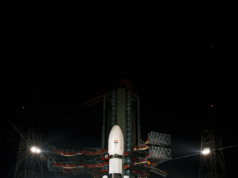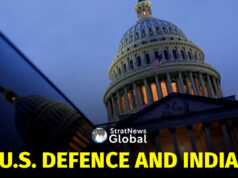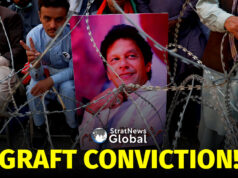NEW DELHI: The first week of March saw the road from almost every capital in the world leading to New Delhi, host to the G20 foreign ministers meeting and the Raisina Dialogue.
Foreign ministers of 19 nations and the European Union, which comprise the Group of 20, were among the 40 delegations and 30 international organisations represented at the two-day summit held under India’s presidency at the sprawling Rashtrapati Bhavan Cultural Centre.
External Affairs Minister S Jaishankar chaired two sessions, one which focused on multilateralism and issues related to food and energy, and the second which discussed global talent pools and skill mapping, as well as emerging threats including narco-terrorism and the advent of religious and non-state actors in the terror landscape.
The crowd at the Taj Palace Hotel in the nearby diplomatic enclave, which hosted the 8th Raisina Dialogue, was larger. Ministers and military brass, top industrialists, intellectuals, lT wizards, scholars, think tanks and domain experts in development, climate change, gender and equality, sports and of course, assorted politicians and journalists—from over a 100 countries—ensured that the hotel was bursting at the seams from dawn till way beyond midnight.
Jointly hosted by India’s Ministry of External Affairs and the Observer Research Foundation, the Raisina Dialogue is the annual flagship event on India’s foreign policy calendar. Even if one accounts for the fact that several of the top delegates had originally come for the G-20 summit and extended their visit by a day to attend the dialogue, the growing VVIP guest list is touted as a reflection of India’s increasing importance.
“Provocation, Uncertainty, Turbulence: Lighthouse in the Tempest?” was the wordy but apt theme for this year’s dialogue, which was inaugurated by the Guest of Honour, President of the Council of Ministers and Prime Minister of the Italian Republic, Giorgia Meloni, and India’s Prime Minister Narendra Modi.
Prime Minister Meloni, who was on her first visit to India, was accorded the traditional guard of honour at Rashtrapati Bhavan and laid a wreath at Rajghat before heading to Hyderabad House for the summit with Prime Minister Modi, at which the two nations agreed to upgrade the relationship to a strategic partnership.
In the afternoon, she was escorted by Prime Minister Modi to inaugurate the Raisina Dialogue and the lilting Italian accent of her keynote address captivated the massive crowd.
After describing her country as ‘deeply European,’ Meloni dwelt on the importance of identity before remarking on the shared peninsular cultural heritage between India and Italy. “Much like India, the peninsular factor has given us a crucial resource as a continental and maritime nation — a key advantage, making us natural platforms for trade, logistics and dissemination of culture and science,” she said.
She then spoke about a visit to Kyiv, the capital of strife-torn Ukraine, earlier in the week, where she “witnessed the harsh realities on the ground and felt the strength of Ukrainians’ national spirit amid the destruction.”
While the war in Europe might be distant geographically from other parts of the world, where many faced their own hardships, “this should not overshadow what’s at stake,” she said. “Russia’s attack is not simply an act of war or a localised conflict. It’s an act against the territorial integrity of a sovereign nation in violation of the fundamental principles of the global order that enables the international community to thrive.”
Even though the war in Ukraine was not directly listed on the agenda of the dialogue, it percolated into almost every debate or discussion, whether it was on supply chains or the importance of the rule of law.
It was certainly the focus of Russian Foreign minister Sergei Lavrov’s chat with ORF chairman Sunjoy Joshi the next day. Lavrov’s spirited defence of Russia’s actions in the Ukraine was, however, diluted by his acerbic remarks and snubs directed at Joshi. At the formal G20 foreign ministers meeting the night before, Lavrov had reportedly been booed and jeered at by other delegates at the meeting.
Earlier that day, the foreign ministers of the Quadilateral Security Dialogue, better known as the Quad, had a breakfast meeting before attending a panel discussion at the Dialogue moderated by ORF president Samir Saran.
All four foreign ministers—US secretary of state Antony J. Blinken, foreign ministers of Japan and Australia Hayashi Yoshimasa and Penny Wong and India’s external affairs minister Dr S Jaishankar, reiterated that the Quad was a “Force for the good,’ not a military grouping aimed at containing China.
“This is not military but just practical cooperation, It is an open dialogue,” said Yoshimasa. And therefore, “as long as even China abides by the laws and international norms, and also acts under the international institutions, standards and laws, then this is not a conflicting issue between China and the Quad.”
Noting that the Quad works with other partners to help develop the Indo-Pacific region, he said, its focus on maritime issues also helps improve regional security, “We have engaged with this region in infrastructure and connectivity for decades. Quad complements this effort,” he said, adding: “This is a band like The Beatles, where the member is fixed. And they always played together for 10 years. But this is more of a soft group, so that even within the Beatles, Paul McCartney could release an album solo.”
“India is a critical power, great power in the region that there is no reshaping of the Indo-Pacific without India,” said the Australian foreign minister. “We’ve seen that India is a civilisational power that brings a different perspective to some of the challenges of these times.” Reiterating that the Quad is focused on building a secure, stable and prosperous Indo-Pacific, she said: “We are interested in a stable, secure and prosperous Indo-Pacific. Quad’s focus and our engagement with the Pacific Island countries are aligned with Australia’s interests,”
The Indo-Pacific is not merely a priority, but the future, said US secretary of state Blinken said that “For us future is Indo-Pacific, (while) We are rightly focused on what is happening in Ukraine,” he said. We (Quad) are now engaged in working together to help countries to deal with humanitarian situations in natural disasters. We are working on things that are really critical. This is not a military group.”
Jaishankar felt that the Quad should tackle three main issues facing the world today—stable, resilient supply chains, trust and transparency when it comes to technology , and increasing connectivity. He also announced that the Quad had decided to establish a Working Group on Counter-Terrorism, which will explore cooperation amongst the Quad and other Indo-Pacific partners to counter new and emerging forms of terrorism, radicalization and violent extremism.
But while it would be easy to showcase the two events as a sign of India’s rising clout, an Israeli delegate sounded a note of caution. “One,” he said, “despite all the talk, the foreign ministers at the G20 failed to arrive at a joint statement owing to the rift over Ukraine. Two, the total absence of China at the Raisina Dialogue, despite their foreign minister Qin Gang attending the G20 meeting, is significant. Three, the ambiguity over the Quad still remains, and the fact that China was not directly named in the joint statement is a clear sign that Beijing remains a power that no one, not even the mighty U.S., is willing to directly provoke. And finally, while no doubt India is becoming an increasingly important member of the global community, we must not forget what happens when a country’s growing economic and military might starts becoming a matter of concern to those who are already at the top table.”
Asked to elaborate further, he said it was not his place to advise New Delhi but the fact that “despite all her sweet talk,” Italian Prime Minister Meloni’s “direct challenge” to Dr Jaishankar’s repeated assertion that Europe’s problems were not the world’s problems by clearly noting in her speech that “Europe’s problems today have become the world’s problems” was just a small reflection of how the west viewed India’s rise. “So it is not just China that New Delhi needs to be worried about,” he concluded.
In a career spanning three decades and counting, Ramananda (Ram to his friends) has been the foreign editor of The Telegraph, Outlook Magazine and the New Indian Express. He helped set up rediff.com’s editorial operations in San Jose and New York, helmed sify.com, and was the founder editor of India.com.
His work has featured in national and international publications like the Al Jazeera Centre for Studies, Global Times and Ashahi Shimbun. But his one constant over all these years, he says, has been the attempt to understand rising India’s place in the world.
He can rustle up a mean salad, his oil-less pepper chicken is to die for, and all it takes is some beer and rhythm and blues to rock his soul.
Talk to him about foreign and strategic affairs, media, South Asia, China, and of course India.




